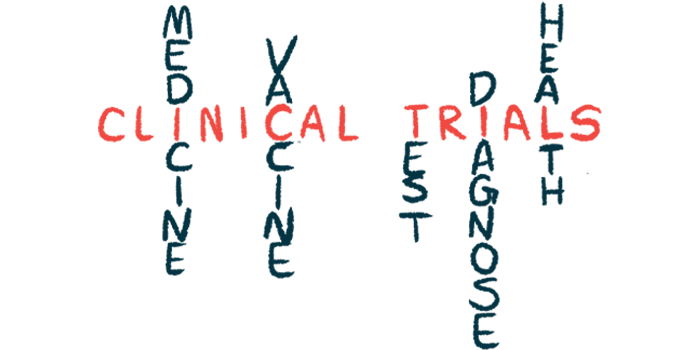Nicotinamide riboside supplement may help ease motor symptoms
But no guarantee of long-term safety with high-dose NR, per trial data
Written by |

One month of a high-dose nicotinamide riboside (NR) supplement — thought to boost energy production in the body’s cells — was well-tolerated and eased motor symptoms among people with Parkinson’s disease in a small clinical trial.
But the researchers caution that these results are preliminary, and note that data from ongoing trials should shed more light on the effectiveness and safety of taking a nicotinamide riboside supplement at a dose greater than 2,000 mg per day.
The findings do support future longer-term studies of NR, the team noted.
“While our data do not guarantee long-term safety, they allow future dose-optimization and efficacy studies to extend the tested dose range of NR to 3000 mg daily, provided that appropriate safety monitoring is implemented,” the researchers wrote.
The study, “NR-SAFE: a randomized, double-blind safety trial of high dose nicotinamide riboside in Parkinson’s disease,” was published in Nature Communications.
Trial aimed to assess safety of a high-dose nicotinamide riboside supplement
Nerve cells in the brain require a great deal of energy for the intense work of sending electrical signals through the body. Problems with energy generation are thought to play a central role in the progression of neurological disorders like Parkinson’s.
Nicotinamide riboside, or NR for short, is a supplement that contains a modified form of vitamin B3. Cells can use it to manufacture a molecule called NAD — fully, nicotinamide adenine dinucleotide — that’s key for energy production.
Data from a prior Phase 1 study called NADPARK (NCT03816020) indicated that NR supplements could improve energy production in the brains of people with Parkinson’s.
An ongoing Phase 2 trial, called NOPARK (NCT03568968), which is actively recruiting participants at several sites in Norway, aims to test the supplements against a placebo in about 400 patients. The trial is expected to conclude by the end of 2024, according to a press release.
Participants who complete the placebo-controlled phase of the trial can enter into an extension study (NCT05546567) in which all are given active treatment.
While early findings from studies of nicotinamide riboside have been promising, none had tested doses higher than 2,000 mg per day in people. Haukeland University Hospital, which is sponsoring the NOPARK study, sponsored another trial called NR-SAFE (NCT05344404) in 2022 to evaluate the safety of higher doses of the supplements.
The trial enrolled 20 people with Parkinson’s who were given 3,000 mg NR or a placebo daily for about a month. Most study participants identified as male, and the average age was in the 60s.
The NR and placebo used in the study were supplied by ChromaDex, which sells the supplements under the brand name Niagen. The product is marketed to promote so-called healthy aging — but notably, unlike medications, dietary supplements such as Niagen generally don’t need to prove their effectiveness before they can legally be sold.
No safety issues reported, but monthlong trial only enrolled 20 patients
Results from NR-SAFE showed that high doses of nicotinamide riboside overall were well-tolerated, with no serious safety issues reported. All of the reported safety-related events were mild, and rates of these events generally were similar in patients given NR or the placebo. They also were typical of what would be expected for adults with Parkinson’s.
Two patients given NR developed a slowed heartbeat, known as bradycardia, but it did not cause any noteworthy symptoms. Otherwise, lab tests didn’t show any noteworthy findings.
Biomarker data, meanwhile, suggested a notable increase in NAD and other molecules related to energy generation in participants given NR.
Collectively, these data indicate that doses of NR up to 3,000 mg per day can be given safely, at least in the relatively short term. Importantly, the data indicate that patients can start on this high dose right away, rather than needing to start at a lower dose and work up, as is required for certain Parkinson’s medications.
“In our opinion, adequate dose experimentation in clinical trials will be paramount, in order to adequately explore and exploit potential dose-dependent beneficial effects in [Parkinson’s disease],” the researchers wrote.
Earlier this year, following the completion of NR-SAFE, Haukeland University Hospital launched another study called N-DOSE (NCT05589766). That trial is testing doses of NR from 1,000 to 3,000 mg per day in Parkinson’s patients, with the aim of identifying the optimal dose of the supplements. The study aims to enroll about 80 participants, and recruitment is ongoing at the hospital.
NR-SAFE was a small study mainly designed to evaluate safety. Nonetheless, data suggested that NR supplements were “associated with clinical improvement,” the researchers said.
Specifically, scores on the Unified Parkinson’s Disease Rating Scale (UPDRS), a global measure of the severity of Parkinson’s symptoms, improved by more than 10 points on average for patients in the NR group. By comparison, among patients given the placebo, average UPDRS scores were unchanged over the course of the study.
The researchers noted that the improvements in UPDRS seen in the NR group were mainly driven by better scores on part 3 of the scale, which specifically assesses the severity of motor symptoms.
The finding of symptomatic improvement should be considered preliminary, awaiting confirmation in larger trials, such as the ongoing phase II trials N-DOSE and NOPARK.
While these findings are promising, the researchers noted an important caveat when looking more closely at the data: By chance, at the assessment at the end of the study, participants given NR supplements generally had taken a dose of levodopa more recently.
Levodopa is a main agent used to treat Parkinson’s, and it “strongly influences motor symptoms,” the researchers noted. As such, although the effects on motor symptoms with NR appear promising, the researchers stressed that “one cannot exclude the possibility that the observed change in … UPDRS was, at least in part, driven by the difference in levodopa dosing intervals.”
Given these limitations, the researchers said that “the finding of symptomatic improvement should be considered preliminary, awaiting confirmation in larger trials, such as the ongoing phase II trials N-DOSE and NOPARK.”
The scientists also stressed that additional research will be needed to assess the long-term safety of high-dose NR, given that this study lasted only one month.




